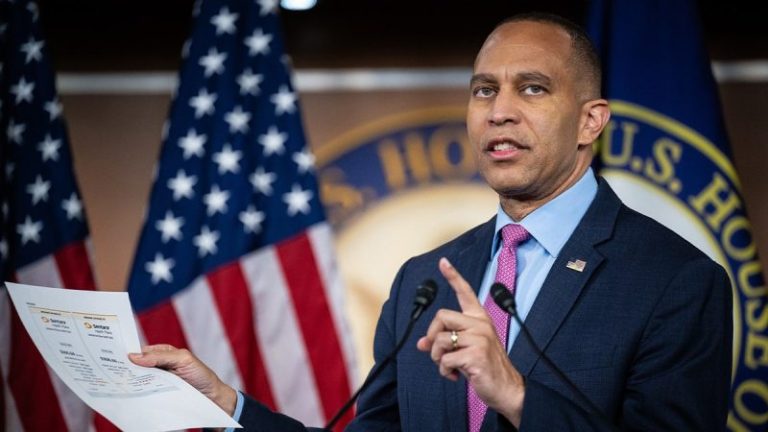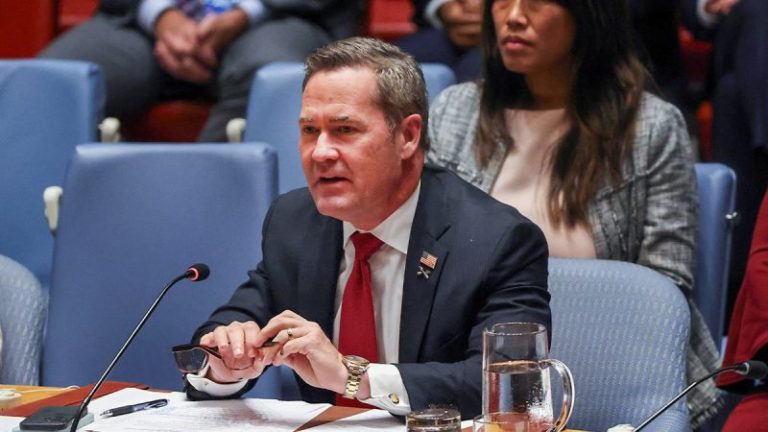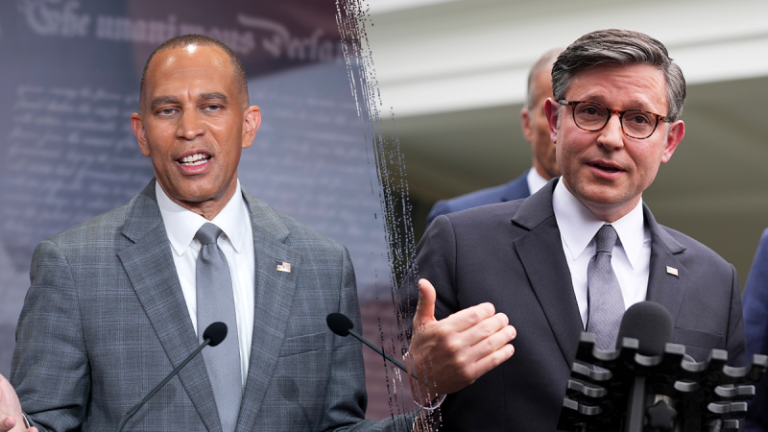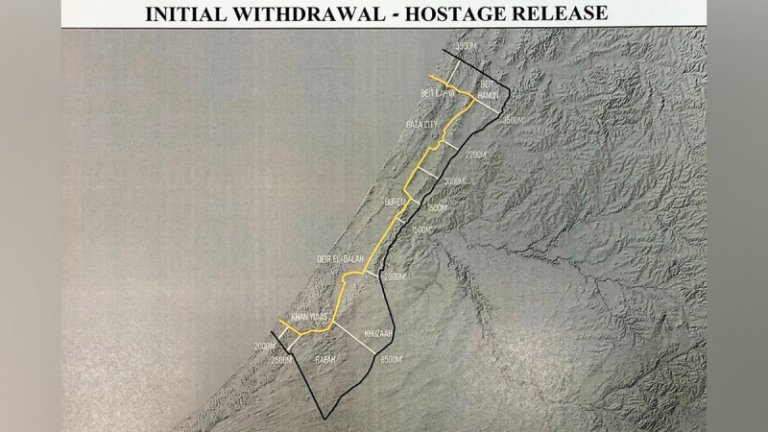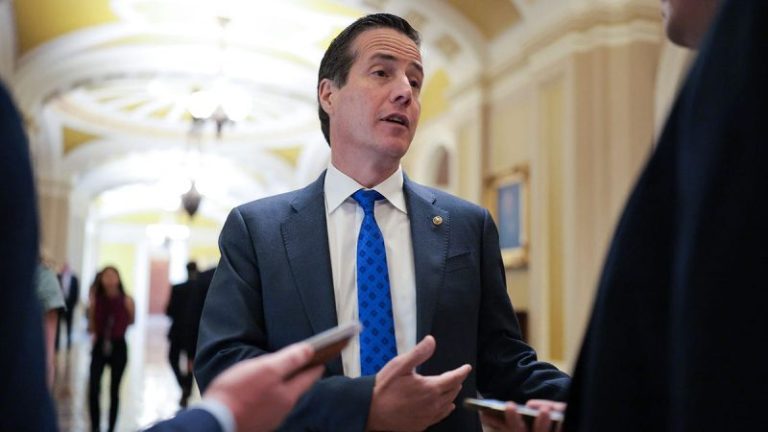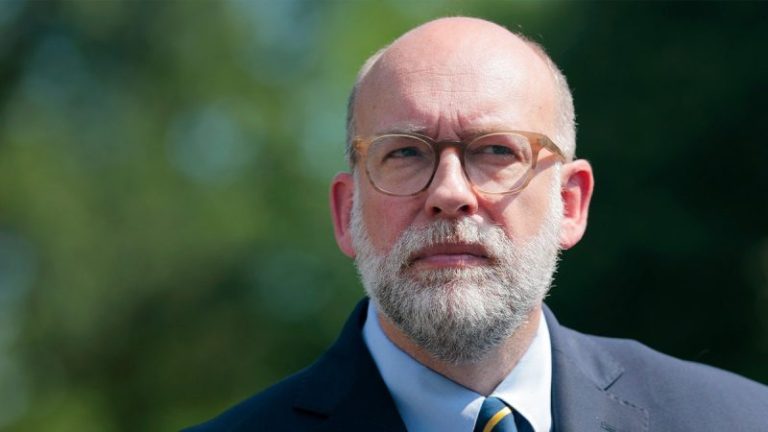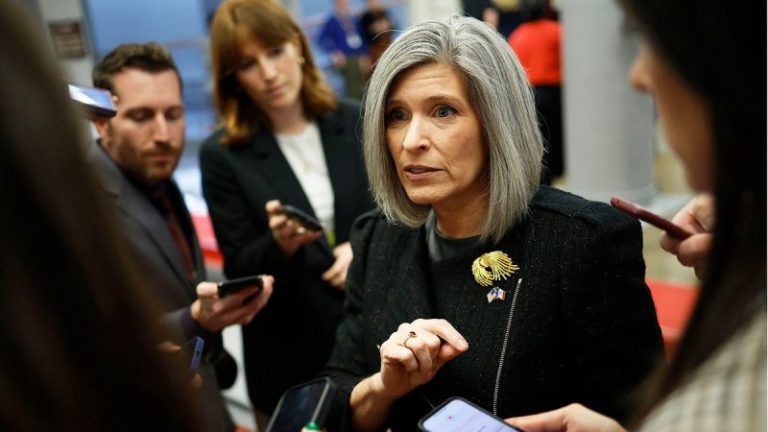House Democrats’ campaign arm is rolling out new ads to pressure Republicans to return to the negotiating table as the 2025 government shutdown is poised to enter its second week.
Democrats have sought to make the ongoing standoff into a healthcare fight, with House Minority Leader Hakeem Jeffries, D-N.Y., and Senate Minority Leader Chuck Schumer, D-N.Y., insisting their caucuses will not vote for a funding bill that does not include an extension of expiring Obamacare subsidies enhanced during the COVID-19 pandemic.
The Democratic Congressional Campaign Committee (DCCC) is investing in a four-figure ad buy across 13 districts where Democrats believe they can hold or flip seats in the 2026 midterms.
The ads point out that ‘Republicans control the government’ and say, ‘They just shut it down.’ The ads in Democrat-held districts say lawmakers there are ‘protecting affordable health care.’
Three of those districts are held by Republicans, while 10 are held by Democrats.
Both the House and Senate are out this weekend after the upper chamber tried and failed for a fourth time on Friday to advance the GOP’s plan to fund federal agencies through Nov. 21.
The bill, called a continuing resolution (CR), is an extension of fiscal year (FY) 2025 federal funding levels, which also include $88 million in security spending for lawmakers, the White House and the judicial branch amid a heightened political threat environment.
Democrats have argued that Americans who rely on the enhanced Obamacare subsidies are in imminent threat of seeing their health care premiums skyrocket if not dealt with in this measure.
The Obamacare subsidies were given a temporary enhancement during the COVID-19 pandemic under former President Joe Biden’s American Rescue Plan, and later extended through 2025 under his Inflation Reduction Act.
Republican leaders have said they are willing to discuss reforming and extending the subsidies at a later date, while accusing Democrats of holding the government hostage at the expense of vulnerable Americans who rely on federal services.
‘Vulnerable House Republicans shut down the government because they don’t care about working Americans having access to affordable health care,’ DCCC spokesperson Nebeyatt Betre told Fox News Digital. ‘While Republicans create a health care crisis, House Democrats will keep working to lower Americans’ health care costs. Make no mistake: vulnerable House Republicans own this shutdown, and the DCCC is making sure voters know who to blame.’
House Republicans’ campaign arm, meanwhile, released an ad earlier this week on the heels of the government shutting down at midnight on Wednesday.
Their own ads, also a four-figure investment, accused Democrats of refusing to ‘fund the government’ at the expense of military paychecks, veterans, farmers and small businesses.
Republicans have been pointing to Democrats’ counter-proposal for a CR as proof that Democrats are fighting to restore health care for illegal immigrants. The left’s plan called for repealing the health care changes made in the GOP’s ‘One Big, Beautiful Bill,’ which, among other measures, tightened restrictions on who can access Medicaid.
Democrat leaders have denied fighting for illegal immigrants, however.
‘Out of touch Democrats shut down the government to bankroll handouts for illegal immigrants and appease their radical base. Voters won’t forget who betrayed them, and the NRCC will make sure Democrats pay the price,’ NRCC spokesman Mike Marinella told Fox News Digital at the time.

